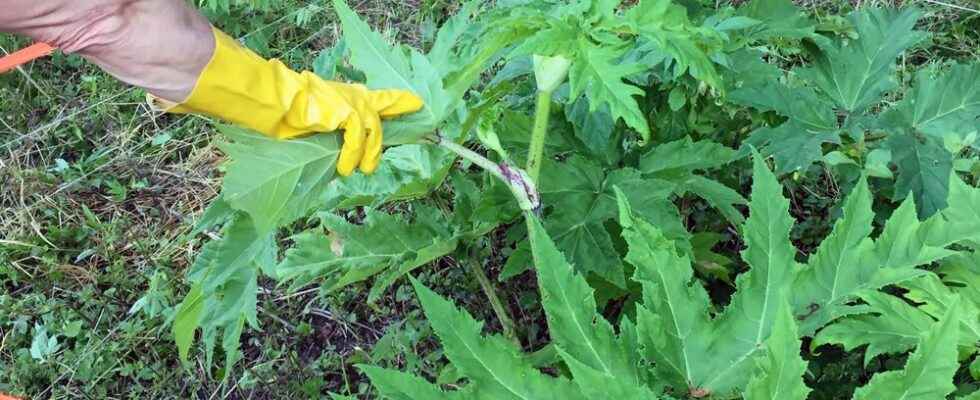John Kemp says urgent action is needed to slow the spread of giant hogweed found along the banks of the Grand River.
The noxious plant hurts the ecosystem, is a risk to human health and threatens local tourism, says Kemp, who, in 2018, started the Giant Hogweed Mitigation Project.
The St. George resident recently told Brant County councilors that failure to act quickly will lead to greater spread of the plant and higher remediation costs.
Volunteers with the mitigation project search areas along the Grand from Fergus to Port Maitland to locate, map and remove the plant. But they need support from municipalities and landowners, Kemp said.
“Landowners could be verbally encouraged to look for and get rid of the plant but that might take years for that to catch on,” Kemp said. “We don’t have that much time.
“I’m proposing that we use some kind of financial incentives to encourage landowners to inspect their properties twice a year.”
He said inspections are needed for four successive years to put a clamp on the spread of giant hogweed.
Giant hogweed can reach a height of 4.6 meters and a plant can produce as many as 50,000 seeds. Native to the Caucasus Mountains that straddle Europe and Asia, the giant hogweed was brought to North America as an ornamental garden plant in the 19th century.
Contact with the hogweed’s sap can burn and blister skin and makes skin sensitive to light.
The plant thrives in areas near creek mouths and natural springs. Bringing the hogweed under control means getting rid of stands and collecting and properly disposing of seeds, said Kemp.
He provided councilors with a detailed plan aimed at reducing the giant hogweed population.
Although it’s unlikely giant hogweed can be eliminated from the watershed, Kemp said the growth rate must be reduced to maintain clear access to the Grand.
Kemp is also calling for a well-equipped and -trained rapid response team to help get rid of plants
To be effective, remediation efforts should take place by mid-April, when the plant starts to grow, and in June and July when it starts to flower.
Councilors referred Kemp’s presentation to county staff for a report in early April.
“It’s a big concern,” Coun. Joan Gatward said. “We have a lot of tourists in Brant County who use the river for canoeing, kayaking and tubing. And, if they land on the shore and get into this weed, they’re in big trouble.”
Gatward said a pet of someone she knows got into giant hogweed last summer and the animal’s face was covered in blisters. The veterinary bill was over $600.
Kemp’s plan can be viewed at www.pub-brant.escribemeetings.com/filestream.ashx?DocumentId=48966.
twitter.com/EXPVBall
